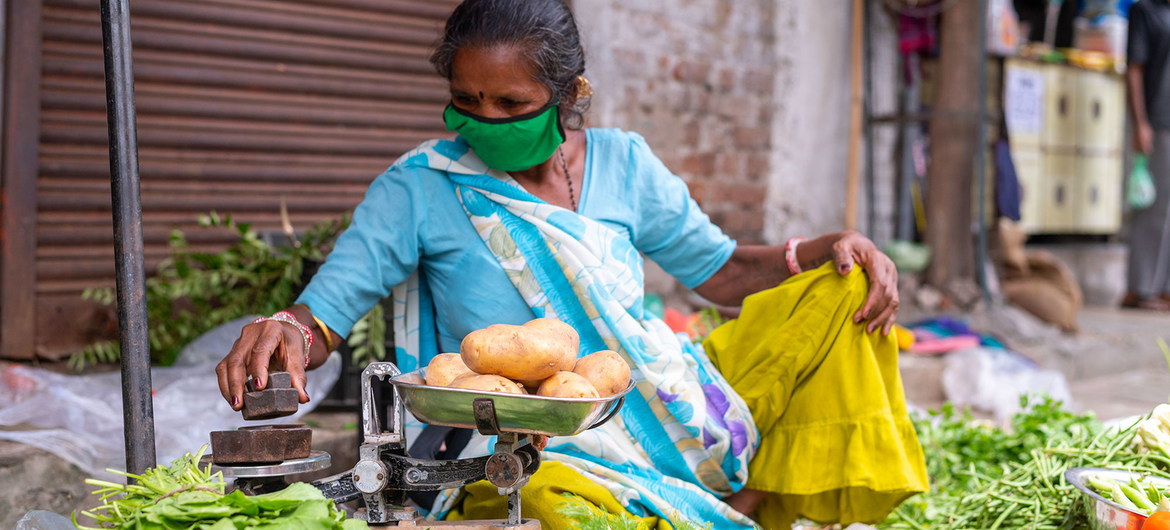Chinta Devi, a vendor selling Tobacco products, “could not earn throughout” the early days of the lockdown in 2020. The only means of survival, she added, “after all our savings ran out was to cut down our consumption of food.” Most Indian laws that regulate economic activity protect us from a defaulting buyer and a defaulting seller.
But how do they protect us from a defaulting State, especially one that has failed to protect its citizens?
In the past year, street vendors in India have been subject to unjust criminalisation, harassment, and loss of livelihood. Shopkeepers and street vendors, as per a Criminal Justice & Police Accountability 2021 study in Madhya Pradesh, were the second-largest “offenders” in the state. Several vendors had their goods, carts, or two-wheelers confiscated by the police. Lockdowns also cost many vendors a significant portion of their earnings. Already living precarious socio-economic lives, women street vendors were severely struck by these restrictions.
India’s pandemic response is based on three legislations: Disaster Management Act, 2005 (DMA), the Epidemic Diseases Act, 1897 (EDA), and the Code of Criminal Procedure, 1974 (Section 144). All three legislations give the executive, broad and extraordinary powers to tackle a crisis through government orders. These took the form of excessive measures such as mandatory quarantines, prohibitions on movement, an app for tracking location and movement, and curfews. Some of these orders have been categorised as “vague, overboard and disproportionate”.
These measures seem reasonable when we consider how the World Health Organisation’s Director-General urged all countries to “take urgent and aggressive action”. What we missed, however, is the following part in his speech: “Countries must strike a fine balance between protecting health, minimizing economic and social disruption, and respecting human rights”.
In fact, closer home in India, the National Disaster Management Authority (NDMA) also recognised this in its March 2020 order:
“Adopt a humane approach in dealing with the public, particularly those who are left adrift by the lockdown. Enforcement of the laid down restrictions must be tempered with compassion and a sense of duty of care for our citizens.”
A simple scan of the news reveals the police and civic authorities did not quite embody this spirit. The police repeatedly harassed people, including ones who are complying with the executive orders. They have not been any easier on street vendors.
Some instances from across the country include physical violence on women street vendors, overturning hawker carts, retaliation against vendors who do not pay bribes. Other studies reveal that women vendors are particularly vulnerable during the lockdown. Added to the challenges of loss of income, is the threat of sexual harassment.
To probe further, the Centre for Civil Society spoke to over 40 women street vendors across Delhi and Rajasthan. Women reported that their goods were often seized under the garb of violating COVID-19 protocols and released only after ‘paying off’ the police officials. In several instances, police officials imposed restrictions in addition to the ones mentioned in government orders. Even when the lockdown was eased, ‘business-as-usual for vendors was fraught with harassment.
Our conversations with women vendors made it clear that there are two major obstacles that stand in their way of resuming their livelihoods.
First, several vendors do not have the capital needed to sell their goods due to the loss of income incurred during the pandemic. In June last year, the Ministry of Housing and Urban Affairs recognised this and launched the PM SVANidhi loan scheme. Under this scheme, vendors can avail of a working capital loan of Rs. 10,000. While there are several challenges with the implementation of the scheme, it is positive to see the government take this initiative.
The second obstacle lies entirely undealt with—police harassment of compliant vendors. This stark reality is captured by what one woman street vendor said—“COVID se zyada toh vardi walon se dar lagta hai” [We fear police officials more than the COVID-19 virus].
Unfortunately, the orders passed during COVID-19 and the Street Vendors Act 2014 fail to hold public authorities accountable for their actions.
NDMA has nudged the authorities to act with ‘compassion’ and adopt a ‘humane approach’. But what happens when police officials do not do that? Without any repercussions or penalties, it is difficult to bring these excesses under control and protect livelihoods.
As Ranu Salvi, a woman vendor from Rajasthan rightly stated, “If the government can’t help us monetarily, allow us to work and look out for ourselves. Don’t take away both.”
Read more: The Learning Crisis Starts Early
Post Disclaimer
The opinions expressed in this essay are those of the authors. They do not purport to reflect the opinions or views of CCS.





